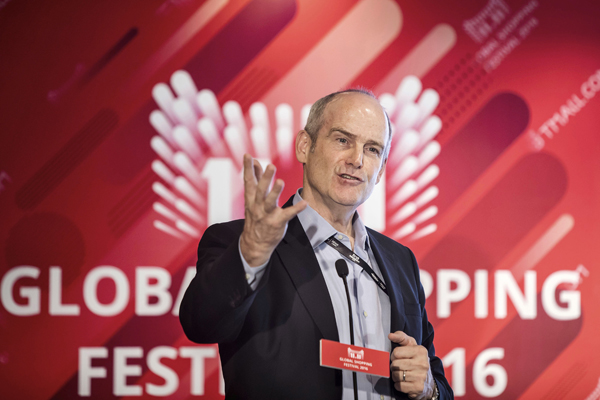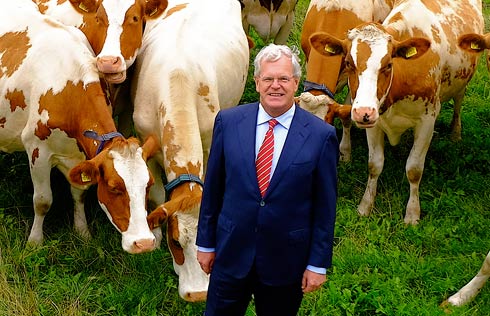Alibaba US jobs pledge showcases global strategy
 |
|
Michael Evans, co-president of Alibaba Group Holding Ltd, gestures as he speaks at a news conference during the company's annual November 11 Singles Day online shopping event in Shenzhen last year. [Photo/Agencies] |
E-commerce giant has solutions for bridging US-based sellers with its vast China market
Alibaba Group Holding Ltd added $7.5 billion to its market value after reporting quarterly results that beat estimates and raising its full-year sales forecast. China's biggest e-commerce company increased its projection for fiscal 2017 revenue growth to 53 percent, from 48 percent previously.
Jack Ma talked the talk when he met Donald Trump earlier this month, promising to create 1 million jobs in the United States by linking small businesses with Chinese online buyers. Now Michael Evans has to walk the walk.
The president of Alibaba is responsible for realizing Ma's vision, which some analysts criticize as being unrealistic in scope and problematic in implementation. Yet Evans said the online emporium's dealings with 10 million small businesses in China can be the template for its US efforts.
"We understand the power of connecting small businesses to consumers-in this case, new consumers for their products-and the leverage that gives the small business to hire more people," Evans said. "For the next five years, it's going to be a business priority and focus in the US."
Alibaba is trying to broaden its revenue sources as China's economy grows at the slowest pace since 1990. Ma's attention-grabbing pronouncement was portrayed as a new initiative, though the company has been talking up a US expansion since Ma said he wanted more than half of sales to come from outside China by 2025.
Last quarter, that portion was roughly 26 percent, according to data compiled by Bloomberg.
That would mark a second-straight decline in growth for the e-commerce company, where explosive expansion was the norm before its initial public offering. Still, the company's shares are outperforming the New York Stock Exchange this year.
Now Alibaba faces a cooling economy at home. China's gross domestic product expanded by 6.7 percent last year, and that's expected to drop to 6.4 percent this year, Bloomberg economist surveys show.
To diversify, Alibaba convinced mega-retailers such as Macy's Inc and Costco Wholesale Corp to open online shops. This led a $2.6 billion deal to privatize department store chain Intime Retail Group Co and ramped up its outreach to small and medium-sized enterprises.
Alibaba already has 650,000 US-based companies registered on its business-to-business platform, primarily used for sourcing, and more than 7,000 brands across its platforms including Tmall Global, where businesses sell directly to consumers.
Recruiters will fan out across the US to lure more businesses, Evans said. Their pitch: China's appetite for cross-border retail e-commerce is expected to reach 3.6 trillion yuan by 2020, according to Ali Research Institute, a unit of Alibaba.
Evans said: "Today, these people are selling products in their local communities. The key is to connect them to new sources of demand-consumer demand in China and Asia."

















